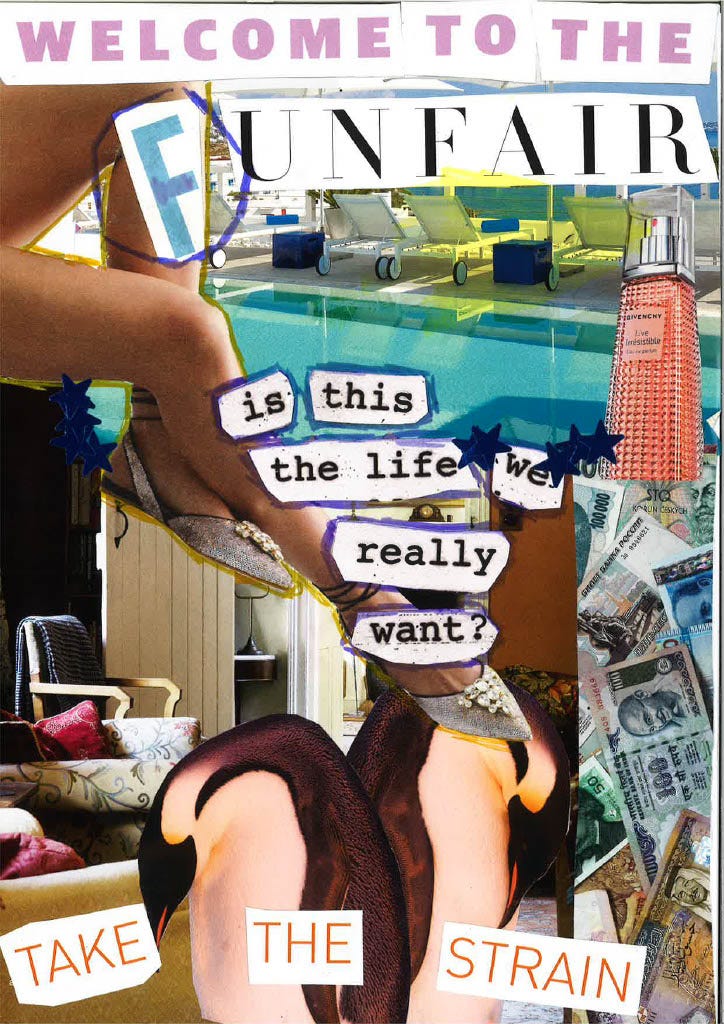The Reality of Reality TV – Love Island’s effect on claim-to-fame families
Brother of former Love Island contestant recounts sister’s years of harassment following stardom
The potential harassment celebrities can receive after their time on television, on shows like Love Island, is widely understood – yet the impact this status has on families is rarely explored in its relation to fans and ITV.
Watched by Millenial and Gen Z audiences annually, the show offers a romanticised ideal for many young people – being cast away to a tropical island, inhabited by attractive peers, with the goal being to fall in love. Love Island is very popular on all platforms of media discussion, yet its glorification is often overshadowed by its alternate identity; a toxic environment where the argumentative youth are forced into conflict for the sake of audience entertainment.
The series’ conflict propagates audience response, as the winners of the contest depend on their votes. Without audience scrutiny and bias, Love Island wouldn’t be popular – though, this success is problematic, as ITV profits from a model that dehumanises contestants into characters that are mistreated by audiences.
Kept anonymous to avoid such mistreatment, John was a teenager when his sister appeared in the series – at the time, not knowing what it was.
“I just remember my Mum wasn’t keen on it, my Dad wasn’t keen on it”, he recounts, his Mother telling his sibling not to do ‘anything you’ll regret’. His relationship with his sister also shifted as she grew accustomed to her new post-television career:
“She was more busy and distant [...]. There was less time for us and all that, she was focused on her career and everything – you know, to keep the momentum going”
When the season aired, those who found out about his sister’s identity in school would approach him, either to ask about her or to shame him:
“There was one time a guy came up to me and was like, ‘I w**ked off to your sister’ in my ear.” When asked how his sister was treated differently after exposure, he explained it was mainly racism – “bigots, people trying to be horrible online. [...] I feel like when you get put in that position, you’re not really prepared for it. People who don’t know you think that they know you.”
John is referring to parasocial relationships – when people form one-sided relationships with, usually, public figures. In Love Island’s example, audiences feel involved with the participants’ lives and therefore feel they can scrutinise them.
This mirrors the treatment of previous contestants and their families – the mother of Molly Marsh (Series Ten), Janet, recounts sleepless nights in an interview with The Tab – “They made stuff up about me. I’ve been through it all as well. For me to read what people think about me, that is tough.”
Karen Smallwood – mother of Savanna Darnell (Series Four) – says she wouldn’t wish her child to go on the show any parent; “I can’t tell you how horrible it is to walk into your child’s bedroom and discover they have been up all night crying because a stranger has said they are the ugliest ever contestant.”
ITV have previously been problematic by facilitating an unhealthy environment for participants, lacking support for those who’ve been on their shows. The Jeremy Kyle Show in particular regularly corners its participants, filming them backstage in humiliating moments.
Kirk Boateng, who annually watches Love Island with his partner, explains, “I guess Jeremy Kyle is a lot like Love Island - you get caught up in their lives, make fun of them when they’re humiliated, but you forget they’re total strangers. We may be wrong about them.”
Damian Collins, MP Chair of the Digital, Culture, Media and Sports Committee, criticises the show – “It is clear that once the cameras started rolling on The Jeremy Kyle Show there was no safe space for anyone in a highly distressed state [...]. We’ve seen one contributor who was extremely upset take refuge backstage only to have a camera thrust in his face to capture him holding his head in his hands.”
Love Island contestants Sophie Gradon (32) and Mike Thalassitis (26) had tragically taken their own lives in 2016 and 2017 respectively. In 2020, former presenter Caroline Flack (40) had also committed suicide. Online trolling harshly deteriorates mental health on top of private matters, yet as of 2022, the show’s support consists of training on ‘the impacts of social media and handling potential negativity’ rather than prolonged support against parasocial fans, who can inconsequentially slander them from behind their screens.
“Fame does a lot of damage to a lot of people”, John says, “It’s a very physically tolling thing, because you’ve got all these eyes on you, you’ve got people judging, you’ve got people speculating, making critiques about your body [...]. Say what you want, but a twenty-year-old isn’t like a thirty-year-old [...] in the grand scheme of things, you’re still a kid.”
Considering that emotional and physical exploitation is necessary to the show’s success, ITV bears significant responsibility for this. Aside from finding love, the main prize for finalists is £50,000, forcing them to act entertaining, disruptive or endearing so as to appeal to the audience’s tastes and avoid being voted off.
Research shows that parasocial relationships evolve from being ‘one-sided’ to ‘one-and-a-half-sided’ when audiences can interact with celebrities. The audience’s heavy influence makes the contestants behind their preference, so they feel entitled to voicing their criticisms and treating these celebrities like toys, rather than people.
Producers are known to edit the show in order to make it more entertaining, or reinforce a narrative, misrepresenting what parasocial audiences perceive – as John explains, when asked if his sister was exaggerated, “...people have got to remember that this is 24 hours condensed into one hour – a lot of producer’s influence, biases, and all of that.”
According to John, ITV is to blame for Love Island’s lack of good mental health care; “... if you’re going to make all this money off of them could you give a few crumbs of your money and get these people some flipping mental health care?”.




